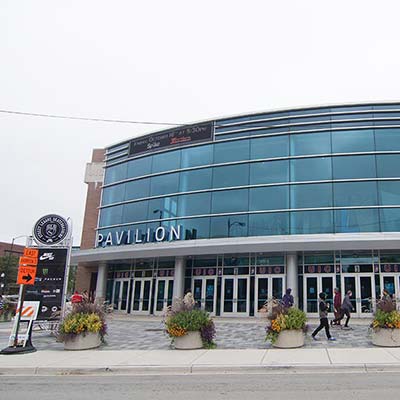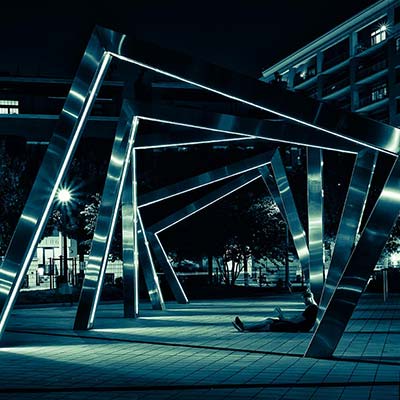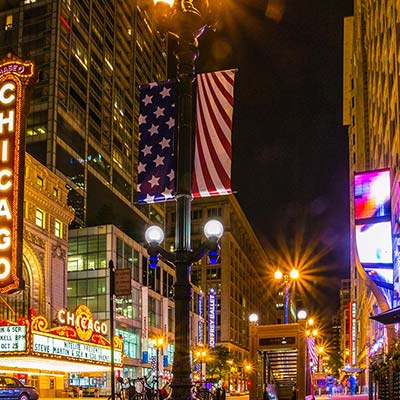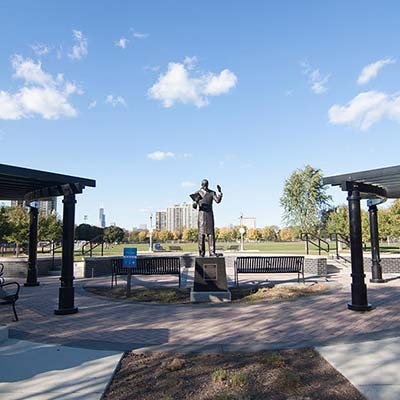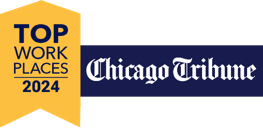Welcome to South Loop
A dynamic mix of history and innovation, Chicago’s South Loop neighborhood has flourished from a once booming commercial sector into one of the city’s hottest residential areas. Much of the area’s eastern edge encompassed by the Museum Campus, home to an impressive collection of cultural institutions including the Field Museum, Shedd Aquarium, and Adler Planetarium. Sitting along the scenic lakefront, the parkland area located around the Campus is an extension of another one of the South Loop’s amazing spaces—Grant Park. Known as “Chicago’s front yard” locally, Grant Park boasts 319 acres of green space and is host to many of the city’s festivals such as the Taste of Chicago, Chicago Blues Fest, and Lollapalooza. Perfect for nature lovers and avid sports fans alike, the South Loop is also home to Northerly Island and Soldier Field. The South Loop offers a variety of dining and entertainment options, and is the location of notable Chicago restaurants including Acadia, Niu B Sushi, Eleven City Diner, and so much more.
South Loop is a part of Near South Side.-
Looking to Buy? Search South Loop listings
-
Interested in Selling? Request a Listing Presentation
-
Want More Information? Sign up for our Trends Report
For Sale in South Loop
-

1910 S Indiana Avenue 421
$415,000
- 2 beds
- 2 baths
- South Loop
- Attached Single
-

1335 S Prairie Avenue 1501
$1,450,000
- 3 beds
- 3.1 baths
- South Loop
- Attached Single
-

1515 S Prairie Avenue 803
$375,000
- 2 beds
- 2 baths
- South Loop
- Attached Single
-

1601 S Michigan Avenue 301
$277,000
- 1 beds
- 1 baths
- South Loop
- Attached Single
-

100 E 14th Street 2205
$775,000
- 3 beds
- 2 baths
- South Loop
- Attached Single
-

1600 S INDIANA Avenue 1106
$365,000
- 2 beds
- 2 baths
- South Loop
- Attached Single
-

1307 S Wabash Avenue 301
$369,900
- 2 beds
- 2 baths
- South Loop
- Attached Single
-

1600 S PRAIRIE Avenue 1409
$360,000
- 1 beds
- 1.1 baths
- South Loop
- Attached Single
-

1322 S Prairie Avenue 801
$479,900
- 2 beds
- 2 baths
- South Loop
- Attached Single
-

212 E Cullerton Street 410
$239,000
- 1 beds
- 1 baths
- South Loop
- Attached Single
-

1211 S Prairie Avenue 4805
$1,250,000
- 3 beds
- 3 baths
- South Loop
- Attached Single
-

1235 S PRAIRIE Avenue 2406
$344,000
- 1 beds
- 1 baths
- South Loop
- Attached Single
-

1601 S Michigan Avenue 304
$265,000
- 1 beds
- 1 baths
- South Loop
- Attached Single
-

50 E 16th Street 403
$350,000
- 2 beds
- 1 baths
- South Loop
- Attached Single
-

100 E 14th Street 2010
$575,000
- 2 beds
- 2 baths
- South Loop
- Attached Single
-

50 E 16th Street 814
$255,000
- 1 beds
- 1 baths
- South Loop
- Attached Single
-

1812 S State Street 34
$364,000
- 2 beds
- 1 baths
- South Loop
- Attached Single
-

233 E 13th Street 1008
$325,000
- 1 beds
- 1 baths
- South Loop
- Attached Single
-

1255 S STATE Street 1913
$289,900
- 1 beds
- 1 baths
- South Loop
- Attached Single
-

1720 S Michigan Avenue 308
$349,888
- 2 beds
- 2 baths
- South Loop
- Attached Single
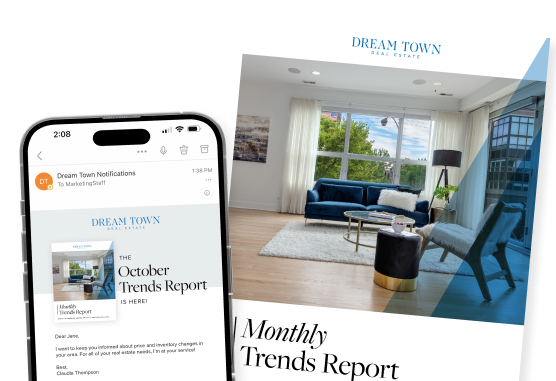
Want more detailed information on South Loop?
Get a Trends Report delivered to your inbox monthly
Send Me South Loop Trends
















